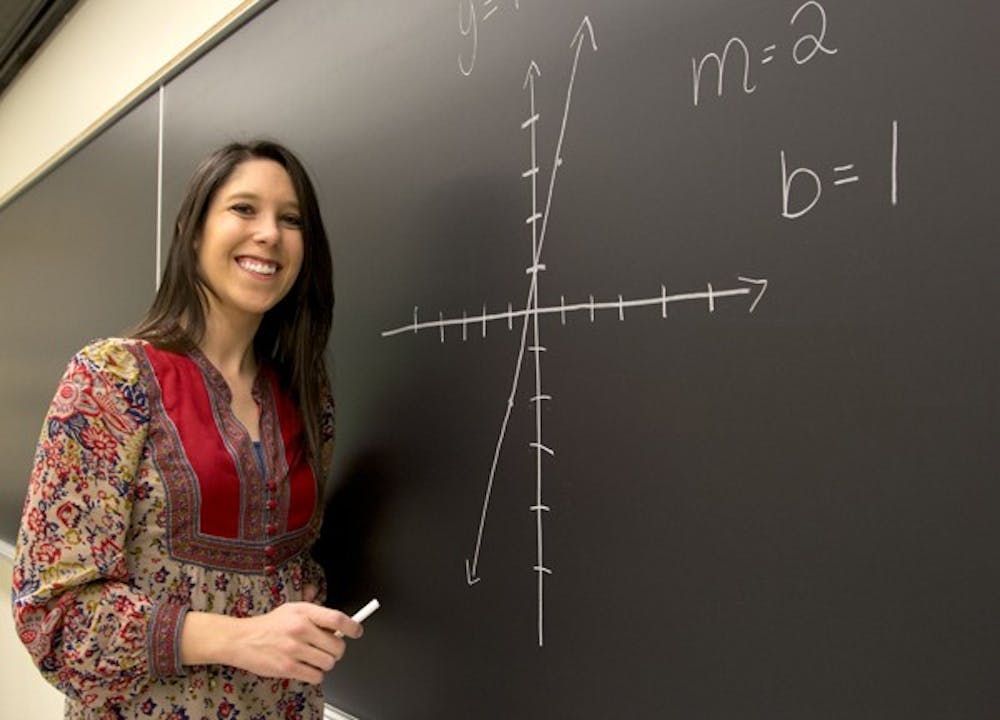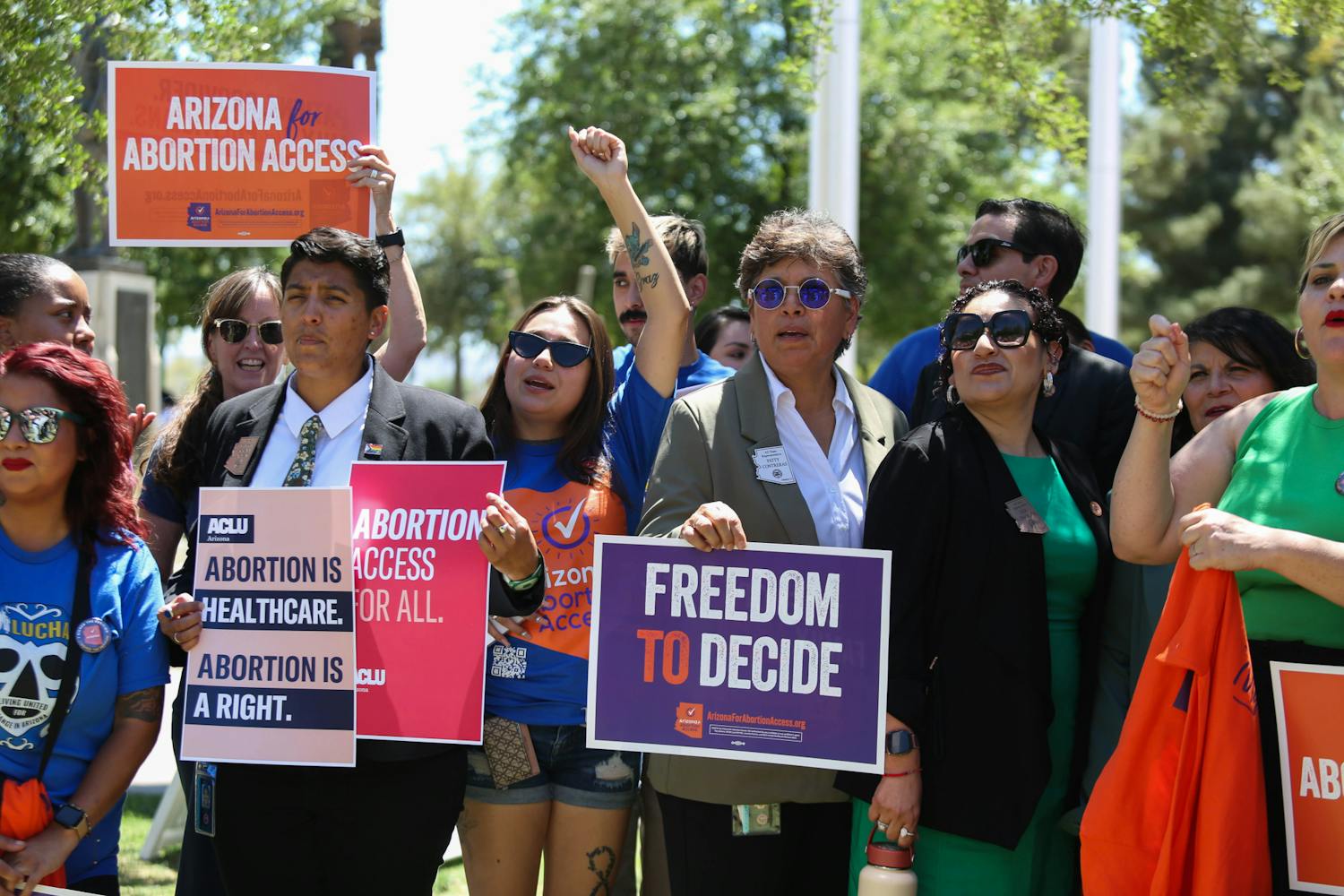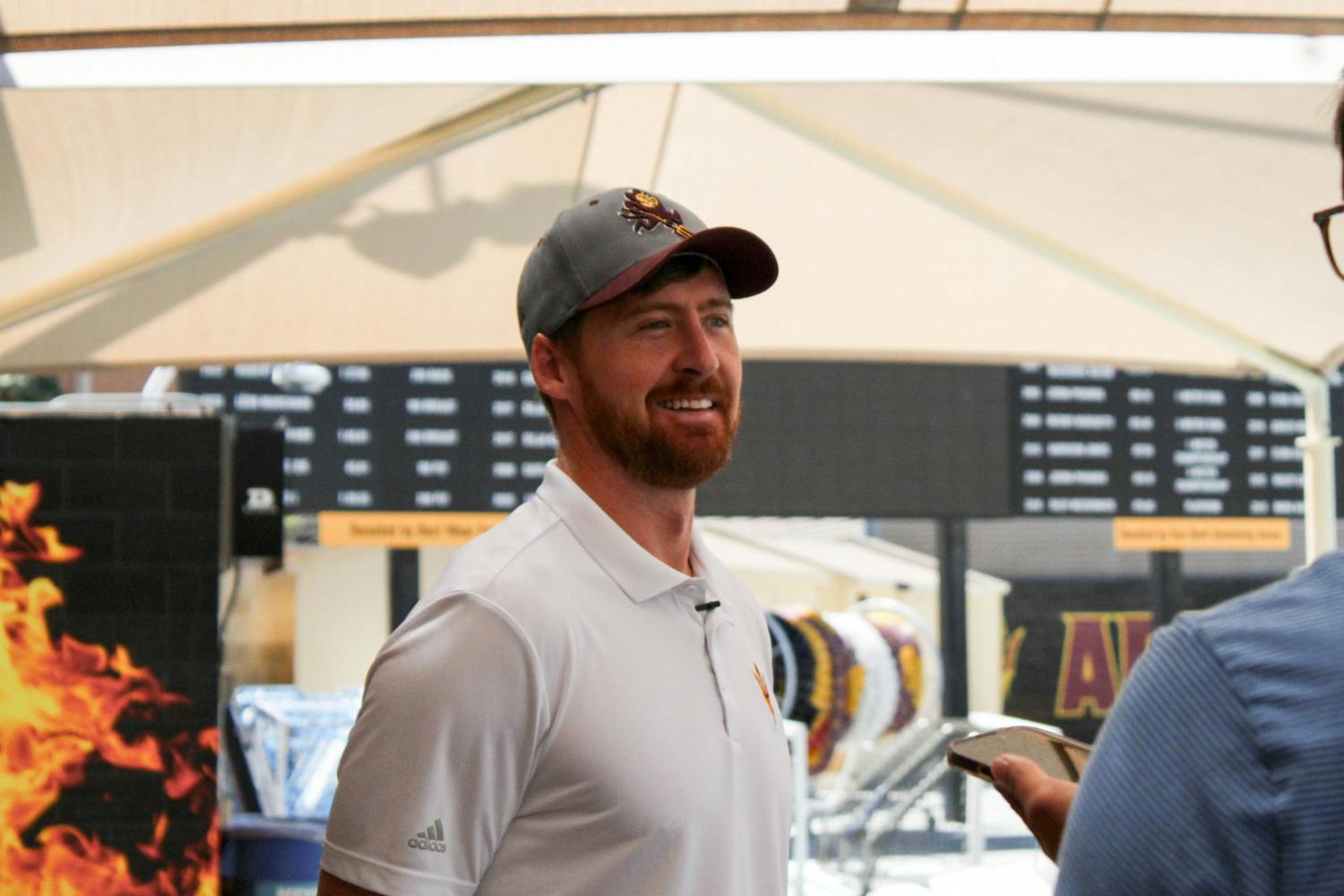 Computational math junior Julia Anglin recently won a study grant that will allow her to travel around the world doing research. Anglin said she’s nervous but excited at the same time for the experience. (Photo by Ana Ramirez)
Computational math junior Julia Anglin recently won a study grant that will allow her to travel around the world doing research. Anglin said she’s nervous but excited at the same time for the experience. (Photo by Ana Ramirez)
Computational math junior Julia Anglin, a student in Barrett, the Honors College, will travel the globe this summer in an attempt to learn the best way to teach math to her future students.
America perceives math as scary and hard, which causes problems for many students, Anglin said.
"Math doesn't have to be scary," Anglin said. "People are scared by math because they either had a bad experience with their teachers or by our social stereotype that math is hard."
She hopes to overcome this stereotype as a math teacher and as a student with the research she will conduct while traveling the world with the Circumnavigator Study Grant.
The grant allows students the opportunity to travel the world conducting research in their individual fields.
Anglin will travel to Finland, Italy, Switzerland, Japan, Korea, Singapore and New Zealand over the course of three months with all expenses paid.
Anglin said she chose these countries because their current math scores are above the international average.
Four students receive the grant each year. One recipient usually comes from Barrett, while the others are typically from East Coast colleges, Anglin said.
The application requires students to lay out their research plan, itinerary and specific plans to conduct their research. After the trip, students must write a research paper on their topic showcasing what they learned.
Anglin said the project began piquing her interest while working as a student teacher at a junior high school.
"I was using all the techniques I learned, and I was trained extensively on how to teach math, but I was still not getting the results and having the students understand the depth I wanted them to," she said. "I was like, 'What can I do?'"
While dealing with questions about how mathematical formulas and concepts work, Anglin researched teaching methods on the side.
"I just started researching a lot of different techniques I hadn't learned about," Anglin said.
Then, she began asking herself, "What are other countries that are really succeeding at math doing?"
Without much luck in her research, Anglin started looking to other ways to help her students.
This led her to come to ASU for another degree in computational math after receiving a bachelor's in secondary education and math from Grand Canyon University.
"Even though I am a math teacher, I only went to Calc 2, and that's kind of lax," Anglin said. "That's why I decided to come back to school. I didn't feel comfortable teaching students, even though I have a passion for it."
Anglin was originally an engineering major at Scottsdale Community College, where she played soccer and was known as the "Smiling Assassin," said close friend and biochemistry senior Joseph Juliano.
"They called her the Smiling Assassin because she is so well known for her smile," Juliano said. "On the soccer field, no one wants to cross her path, because she had such a tremendous slide tackle."
During her freshman year of college at SCC, Anglin had a teacher who changed her perspective on math and life, she said.
"I think he was the one that kind of made me think about what I wanted to do," she said. "He was a great life inspirer."
Eventually, Anglin changed course with a switch to psychology and then to secondary education and math at GCU.
At ASU, Anglin cofounded the club Project Inspire: Math Without Boundaries, with Juliano, which tries to spark student interest in math.
"Our goal is to excite students in mathematics and for whatever their interests are we want to encourage them to stick with the mathematics and stick with the science," Anglin said.
Juliano said Anglin seizes all available opportunities.
"The general theme to her personality is that she is someone who capitalizes on opportunities when they present themselves," Juliano said. "She takes them above and beyond."
He said Anglin began applying for the Circumnavigator Study Grant while she was student teaching, even before she was fully accepted into ASU.
Anglin spent several years working in a psychology research lab with Linda Caterino, with whom she became very close.
Caterino said that Anglin is a hard worker and provides support in her research.
"She really did a lot," Caterino said. "She is very, very efficient, organized, hardworking, and she did it all for free."
Anglin said she hopes her research this summer will open a dialogue needed to improve America's level of teaching.
"I really want to do more with it," she said. "I want to talk about it with teachers. I hope that it's going to be big."
Reach the reporter at sgslade@asu.edu or follow her on Twitter @shelbygslade




